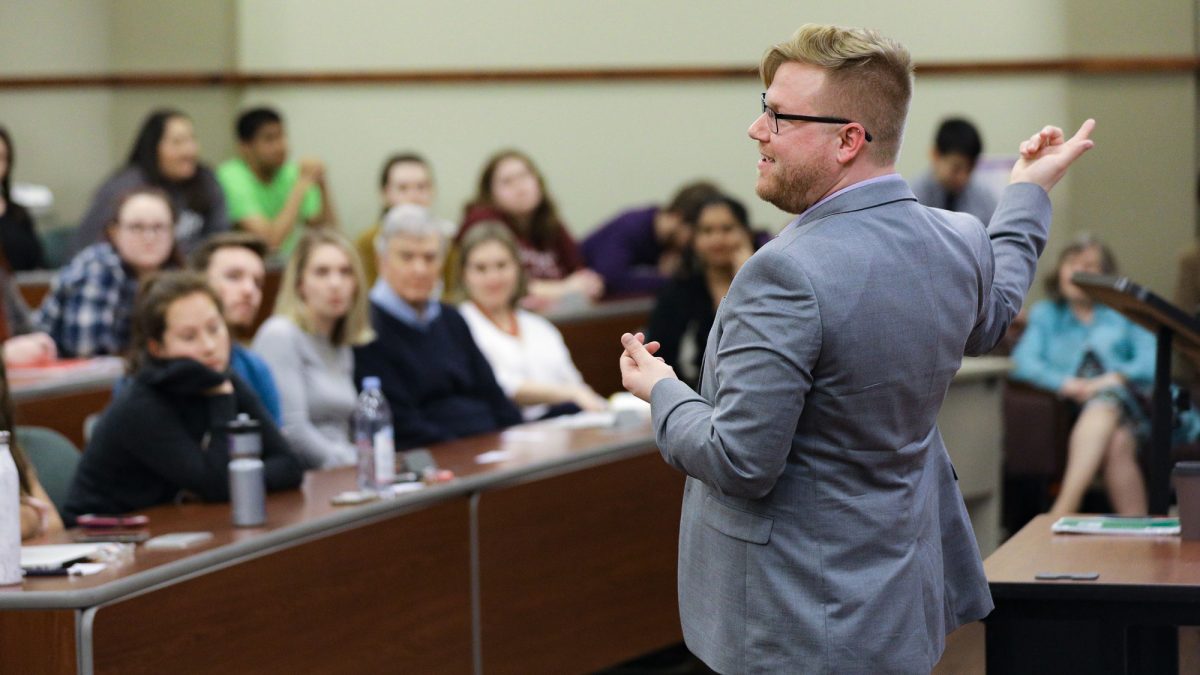It would be ignorant to argue that CLPs are a favorite activity amongst Furman students. The moods of those waiting in queues outside the doors of an upcoming lecture or movie are often similar to the ones displayed by patients in a waiting room at the dentist. Each party knows the coming events will be unpleasant, yet they are also cognizant of the proceeding’s necessity, so both assume a state of resignation guided solely by a mantra of endurance.
It is not hard to understand why students view Furman’s CLP requirement with such distaste. It seems that for every standout speaker who provides a relevant or entertaining presentation, there are multiple guests whose lectures induce an audience-wide slumber. I myself have been duped—roped in by intriguing titles and summaries only to begin an in-depth examination of the kid’s head in front of me after ten minutes, already having tuned out the speaker entirely.
Considering my multiple negative experiences, logically I would argue against the CLP requirement. In actuality, I see the utopian version of what CLPs were meant to be. I have been to just enough interesting ones to have “drunk the Kool-Aid.” The intentions behind the program are pure—repeatedly exposing college students to “a variety of high quality events that provide enriching, challenging cultural experiences” is hardly a detrimental or misguided goal. Yet the problem with the CLP program is not a faulty mission statement, but rather horrendous execution.
So here is my pitch: my critical thinking, analytical, upper-level, confusing solution—get better CLPs. Mind blowing.
Yes, yes, I understand this is an overly simplistic and entirely vague answer. People will refute me by saying “But students have different interests,” “CLPs need to be educational,” or “Kids just hate CLPs in general, providing different topics won’t change that.” However, a look back at last year’s CLP program might just prove me right.
It is entirely truthful that our campus contains students with various and diverse interests. However, it is not accurate to assume certain topics cannot appeal to a majority of students. Step Africa is a perfect example. Students were clamoring to attend the CLP, so much so that it was moved to a larger space. When a lecturer on “Beyoncé and Spirituality” visited, students were turned away in droves. My point is, certain topics have a broad audience. Furman should offer CLPs with mass appeal more often, and in turn decrease the number of opportunities that cater to only a minute swath of the student body.
“Educational” is an atrocious buzzword. CLPs can only be educational if students are actually coherent during the event. A lecturer might have enlightening information, but a bored student won’t retain a single word, no matter the subject’s importance. Engagement is key. Moreover, students get enough traditional education through classes. I found the CLP on sex trafficking in Atlanta incredibly educational, though the matter was in no way academic. If Furman promoted more CLPs that focused less on subjects covered in classes, and more on real world topics, students would be more keen to attend. It’s a win-win: less kids stampede the door when the painful Q&A ends, attendees actually learn something, and Furman helps to cultivate more well-rounded citizens.
Lastly, students aren’t born with an innate dislike of CLPs. Erikson’s Stages of Development do not include Stage 7: CLP Aversion vs Avoidance. Our genes are not coded for such visceral distaste. Students dislike CLPs because of experience. Here again, subject matter comes into play. If CLPs are consistently engaging and relevant, students will experience an attitude shift towards the program.
My arguments were structured based on the CLP program pre-COVID, circumstances that, hopefully, we will once again find solace in. But for now, in this time of small groups and smaller gatherings, the program is inherently going to be different. Honestly, that could be a good thing. Everything is changing right now. Why should CLPs remain the same? This is the perfect time to over-haul the program. After all, if Furman is going to require attendance at hours-long lectures with masks on, at the very least the subject matter should be enjoyable.









































